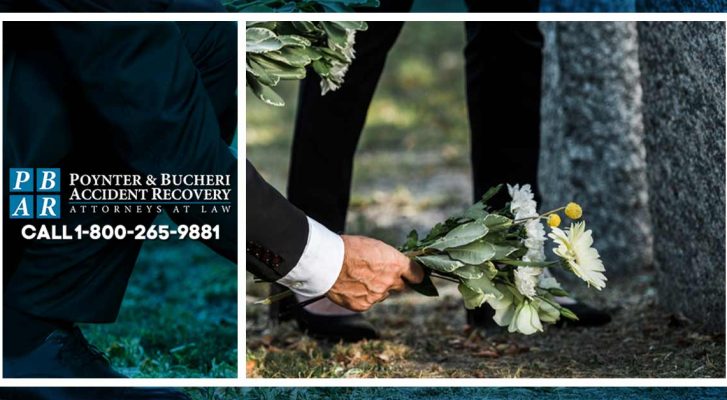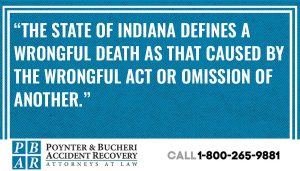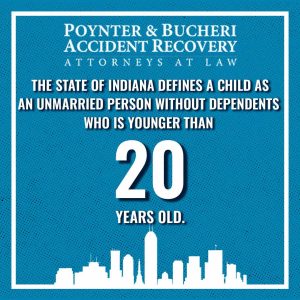
Covering Damages and Expenses After a Wrongful Death

There can be a tremendous amount of emotion, stress, and uncertainty that follows an unexpected, wrongful death. As a loved one or personal representative of the deceased, you may be left with several questions and concerns when managing the estate and loose ends of the individual. This can be particularly true when their passing is unexpected or due to a wrongful action.
If you believe a wrongful death may have occurred, it is important to partner with legal experts who can advise you on the requirements and steps for bringing forth a wrongful death lawsuit. Appropriate legal action can ensure the victim’s estate and family receive the financial compensation they deserve to help ease the burdens that accompany a person’s wrongful death. Though money does not equate to the loss of life, receiving adequate damages can ease financial strain and allow you to create space for grief and healing as needed.
However, the rules and regulations for how to proceed with a wrongful death suit vary from state to state, making it particularly important to be fully informed. As personal injury and wrongful death experts, Poynter & Bucheri outline the basic rules and circumstances for wrongful death cases in Indiana to help you better understand your potential options.
How Is Wrongful Death Defined in Indiana?

The state of Indiana defines a wrongful death as that “caused by the wrongful act or omission of another” (Indiana Code 34-23-1-1, 2020). In other words, the term “wrongful death” applies to situations where the deceased individual would have grounds for legal action against the responsible party had they survived the event or injuries.
Although this could encompass many unfortunate circumstances, some of the most common categories of wrongful death cases include:
- Negligence-related events: Negligence is defined as someone’s failure to act reasonably or with reasonable care to avoid or prevent injury/death. An example of this may include careless driving that results in a fatal crash.
- Omission-related events: Omission is defined as failing to perform an act or provide care when there is a duty, or it is legally required. Examples of this may include failing to disclose information about damaged brakes when selling a used car or failure of a medical provider to address an observed health issue.
- Intentional acts or wrongdoing, including crimes: Intentional acts, as their name implies, apply to any situation where the offender purposely commits an act or causes harm.
As mentioned above, these categories and brief examples may encompass a variety of situations that can result in a wrongful death. Additional examples of wrongful death circumstances can include death resulting from vehicular accidents, medical malpractice events, workplace accidents, unsafe environment incidents, and unsafe product (i.e., pharmaceuticals, appliances, toys, etc.) mishaps. Talking with an experienced attorney can help you to understand if and how your situation may constitute a wrongful death.
What Is a Wrongful Death Civil Lawsuit?
Wrongful death lawsuits are considered civil cases. As such, the court can order the accused to pay a sum of money to the deceased party’s estate or dependents if found liable. This financial compensation is referred to as “damages.” This differs from a criminal lawsuit where a convicted party could be ordered to serve time in prison, pay fines, receive probation, and more.
Additionally, civil cases only require the plaintiff to demonstrate that the defendant is more likely than not responsible for the wrongful death incident. In contrast, criminal cases have a higher standard in that they require the prosecution to prove the accused party is guilty “beyond a reasonable doubt.” A person may choose to pursue both criminal and civil action after a wrongful death, but each will be tried as two separate cases.
Who Can File for Wrongful Death Compensation?
There are some differences in filing requirements, such as whether the deceased is considered an adult or a child.

Death of a Child
The state of Indiana defines a child as:
- Someone less than 20 years old and unmarried, including a fetus aged to viability
- Someone less than 23 years old and attending a post-secondary education or training program
After the wrongful death of a child, the parents or legal guardian of the child may bring forth a civil case against an accused party. If the parents are divorced, the parent with legal custody of the child can initiate the case.
Death of an Adult
By contrast, Indiana requires that wrongful death lawsuits involving the death of an adult be initiated by a personal representative. A “personal representative” is someone appointed as the executor of the estate as outlined by the deceased individual’s legal will. This is different from most other states that allow family members to file the suit directly. In these cases, damages are awarded to the person’s estate and may be used by the personal representative to pay outstanding costs related to the fatal incident.
Any damages exceeding those costs are then paid out to loved ones as outlined by the victim’s will or state law. In this way, personal representatives may act as an extension of the victim’s family by indirectly representing their interests when filing and pursuing a wrongful death lawsuit.
What Economic Damages or Expenses Can Be Covered by a Wrongful Death Suit?
Though damages take the form of financial compensation, both economic and non economic damages can be included when calculating the final amount of money owed to the family or personal representative of the deceased individual.
Below are some examples of financial and nonfinancial losses to consider in wrongful death damages:
- Funeral expenses and burial costs
- Medical bills related to the fatal incident
- Fees for estate management or related legal support
- Loss of wages
- Loss of companionship of an adult loved one (up to $300,000)
Overall, it can feel difficult or impossible to quantify the “costs” of a wrongful death. It is important to try to keep copies of records or other documentation of these costs during and after the wrongful death incident. This will help you and your legal team calculate the expenses of your case. Collaborating with experienced attorneys, like the Poynter & Bucheri team, can help you to carefully consider your unique circumstances for a thorough and appropriate damages estimate.
How Soon Do You Need To File a Lawsuit?
A statute of limitations is a term referring to the amount of time after an event someone can pursue legal actions. These time limits can vary by state and are dependent on the type of legal action in question. In the state of Indiana, wrongful death suits have a two-year statute of limitations. Personal representatives or family members, as applicable, must file their wrongful death suit within two years of the fatality.
Poynter & Bucheri: Expert Indiana Wrongful Death Attorneys
Dealing with the trauma and aftermath of a wrongful death can feel immense. However, you may have legal options to seek out financial compensation to help reduce this burden. The attorneys at Poynter & Bucheri are honored to share our professional expertise to ensure you receive the damages to which you are entitled. By offering our skilled services, we hope to provide peace of mind and confidence throughout the legal process of wrongful death while saving you added time and stress during an already difficult time.
If you believe your loved one was involved in a wrongful death, contact us today at 1-800-265-9881 for your free case review.
